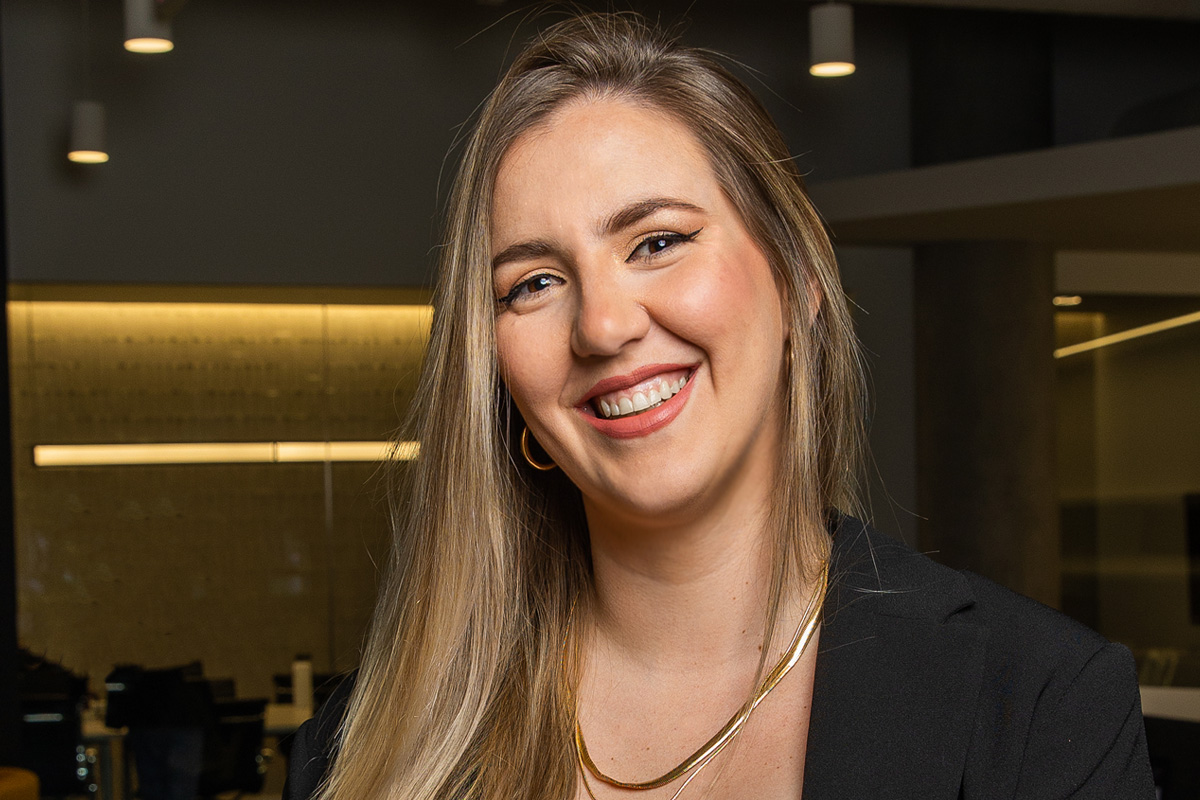It was podcast Episode 130: Employee Evaluations, and Andrew and I were discussing the process and criteria used to assess and measure an individual employee’s performance when we made the point that there would be value in creating a process where upward evaluations could be implemented, one that allowed the employee to share their thoughts and opinions on what mattered to them from their managers, from their team leads, even their employers. We decided to have that discussion to do just that …Welcome to EP 135: Employee Takeover
[Note: If you are reading this via email, click here to access the on-site audio player] Podcast: Embed Subscribe: Apple Podcasts | Spotify | Android | iHeartRadio | TuneIn
Due to the nature of today’s podcast format, I highly recommend that you listen to the episode. The summaries represented here do not capture the entirety of our guest’s position or the tone and intonation in which they delivered their responses.

After graduating top of her 2020 architecture studio at the Fay Jones School of Architecture + Design, Miranda Davis joined BOKA Powell as a design professional. Eighteen months post-graduation, Miranda became a licensed architect and project designer. I originally met Miranda when Marlon Blackwell called my previous office and recommended that we hire her as a summer intern – she and I kept in touch and when she graduated, I bamboozled her to come and join me at BOKA Powell and she has been here working with me ever since.

Originally from Caracas, Venezuela, Marianne Scheer holds a bachelor’s degree in architecture from Simon Bolivar University, she has an architecture license from Venezuela and is currently pursuing her second architecture license for the US. She is an AIA Award-winning architect, with experience that spans many different market sectors as well as a natural storyteller. Marianne currently works at O’Brien Architects as a Project Designer, but her best years were arguably from the time she sat a few desks away from me when she worked at BOKA Powell.

Transparency jump to 4:36
When evaluating potential employers, how important is firm transparency to you? What specific aspects of transparency matter most, and how has this influenced your career decisions?
Miranda – transparency is incredibly important. In the interview phase, is the interviewer dodging questions regarding day one responsibilities? Due to the longstanding nature of the time Bob and I have known each other, we have the ability to talk about not only what I am seeing, but discuss what is happening so that I know that there are things happening behind the scenes and as a result, I know that someone is trying to do something about what is typically on display. As a result of this level of transparency, it gives me the feeling that I can reciprocate, and honestly (and safely) communicate questions and requests that would travel up the chain of command.
Marianne – How does the firm operate? What are the firm’s goals and how do I fit in? How is the financial health of the firm and how does that impact their ability to make a career-centric decision? How does this change as you grow in your career and gain experience? I was just looking for exposure when I started but now I’m looking for active participation on how to grow as a person – both in my job-related skills and other outwardly focused skills. This is just another way that the 2-way nature of a successful relationship manifests itself. If someone is advocating for you in the firm, even if the timing for the request is off, establishing trust to know that someone is working to make things better makes moving through both the good and bad times far easier.
*Clarification on what does transparency actually mean? It explains the motivation or logic behind how or why we do what we do as opposed to just seeing what’s on the summation side of things as an employee.

Path to Promotion jump to 14:01
Career growth and advancement are essential to many young professionals. What do you look for in terms of a path to promotion within an organization? Can you share any experiences or insights about how this has shaped your career choices?
Marianne – what is the framework around me? I want to learn from others but also people will start to learn from me (the idea of training your replacement). There needs to be some sort of framework and an investment of time from both parties. Some people make their work relationship transactional and as a result, show up, do their job, and then leave. For some others, they are more intentional about work because they have goals for themselves because there are other motivations (for Marianne, this is why she lives in the US). Looking for that advancement only from your firm can be frustrating and as a result, looking outside of work to help build and grow your skills is important. There is a timeframe that exists within an office and sometimes, through no fault of either party, your development and the firm’s ability are just out of sync, so it is unfair to think this responsibility lies solely at the feet of the employer.
Miranda – when you first start, you are a sponge and your focus is on learning everything you possibly can and as a result, you probably aren’t thinking about the progression of what is required to be promoted. Having a clear and distinct path to advancement and promotion is important. Since our profession does not have quantifiable goals to identify progress (like sales) establishing timeframes and identifying goals and responsibilities give you something to aim for, whereas taking on additional responsibilities, even if they are from the level you are hoping to ascend to via promotion, without knowing that there is a light at the end of the tunnel, no timeline to that promotion and you’re just taking on additional responsibility that will eventually drain your energy.
Andrew brought up the idea that there is a consideration that less experienced people fail to realize there is a structure to how a firm is organized and as a result, promotions are not perfunctory. You can not have 50 project managers and 2 project architects – it simply doesn’t work. The consideration of timing, and to no less extent, the space, to promote people should be considered but experienced people tend to view this as “I’ve been in this role for 5 years, I meet the job tasks description, and as a result, I am owed this promotion”.

Skill Development and Professional Job Training jump to 31:50
Professional growth often depends on skill development and training opportunities. How crucial is it for you to have access to ongoing training, and can you share examples of how it has impacted your career development?
Miranda – this is super important and extremely crucial. This is about identifying the capacity for growth and development and then putting the tools and opportunities in place to build upon that capacity. The idea of follow-up, or the capacity to follow through when the mentor is overloaded – they might not have the time or focus to dedicate the time and mental resources to take the conversation out of the room and do something with the information.
Marianne – this has less to do with specific skills training and more about surrounding yourself with people who can guide the development of the skills you are naturally predisposed towards. Looking to supplement what you have (or want more of) because more and more important as you progress through your career and the role of a successful mentorship becomes more paramount. Marianne identifies this as a game changer for her and as sought out people not only within her firm, but outside it as well, even beyond the industry, to find people who can help guide, inform, and direct her professional decision-making process.

Sense of Belonging jump to 40:40
For many young professionals, a sense of belonging and purpose in the workplace is vital. How does feeling like you are part of something larger influence your job satisfaction and loyalty to an organization?
Marianne – it’s important. You are right out of school, you are putting in the hours, and you want to recognize you are part of something bigger and you are part of a team. You are probably spending more time at your job than at home and if you don’t have that sense of well-being and that you are fitting in (both professionally and culturally), it’s senseless to put in so much effort, so you have to find your mission within the day-to-day activities. Working with people you care about, and that care about you matters a tremendous amount because it does build loyalty. Having a team to work on a project with and knowing that those people are there for you whether it’s work-related or to help you when you have something going on personally.
Miranda – I feel like this is of medium importance to me – but the draw there is more focused on specific people and projects than it is company-focused (not that I don’t love the firm). The driver is on putting out something that I can be proud of and that I am supporting the people I work with – the sense of belonging is assigned to the project and my teammates.
We did touch on the idea of compensation and the role it plays – and not surprisingly, we landed on “we want more” … so it’s not a particularly interesting conversation. The idea of the things that surround the work and the compensation, as a result, takes on heightened importance. It did get me thinking about a post I wrote just over 8-years ago titled “Work / Life … Different Letters, Same Word” and the part that I still subscribe to can be found in the closing:
Quite literally the worst thing I could think of is having a job and a life where one only began when the other one ended.
While this sort of thinking doesn’t align for everyone, I can’t help but believe that people would enjoy their lives more if they didn’t feel the need to separate and define themselves by either what they do versus who they are.

Flexibility jump to 49:14
Building on trust, hybrid work policy, and work-life balance … it’s not a one-way street and life happens to all of us. What are those moments in people’s lives where you might need more flexibility? Different employees have different backgrounds and having a 2-way relationship that’s flexible enough to allow for these other things makes the relationship work long term.
Marianne – we are in the service business and people-facing moments matter. Work isn’t always everything for everyone. How do I find the time to take on other things that matter to me as a person rather than simply stepping up and putting more and more on my plate that benefits a single aspect of my life? As life marches on, things in your life change in ways that you can’t anticipate, and finding a place where you fit in as well as allowing you to adjust how you engage and interact with all aspects of your life is important.
Miranda – I agree with the points that Marianne made but would add that different people need different considerations and that might suggest that people need different styles of management. One size does not fit all and if the goal is to foster an environment that allows people to grow, the idea of varying types of flexibility requirements would be beneficial.
As someone in a position of leadership, I will agree that ideally everyone is handled uniquely and the manner in which they are managed is singularly curated to each person. However, we did discuss that there are challenges when there isn’t one set of guidelines that can be uniformly applied to the whole. The ability to govern fairly, at least the perception of being fair, suggests that nobody receives special treatment because the 5% that push up against the spirit of the rules end up mandating the process for the other 95%.
Would you rather? jump to 67:46

For today, we are going to do a Would You Rather, I am still tempted to choose the one I ultimately didn’t select, but in the end, I don’t think there’s much to this one.
Would you rather boldly announce “Bing Bong” when you enter the room for every meeting you participate, or announce “High Five” and then high five yourself after making some point during those same meetings?
We were all over the place with our selections and EVERYONE was trying to loophole their way out of choosing either high-five-ing or bing-bong-ing themselves. We were split 50/50 on our selections and each group thought the other group was bonkers for their choice.
EP 135: Employee Takeover
This was an interesting show to participate in because it reinforced ideas and assumptions that I have been considering over the past several years – particularly in the post-COVID workspace. The thoughts of both Marianne Scheer and Miranda Davis are illuminating because they represent a desirable demographic in both the quality of their thinking and the quality of their work and participation. It should not be a secret that one of the key takeaways in any working arrangement is that management and Leadership should participate in active listening in an effort to understand the needs of their workers, regardless of the profession. There is a learning process from both sides that can benefit from the sharing of information so that each group can accommodate the other based on knowledge, respect, and mutual benefit.
If you have thoughts to share, please consider leaving them in the comment section.
Cheers,

Special thanks to our sponsor Petersen, which manufactures PAC-CLAD architectural metal cladding systems. Visit pac-clad.com to learn more.
